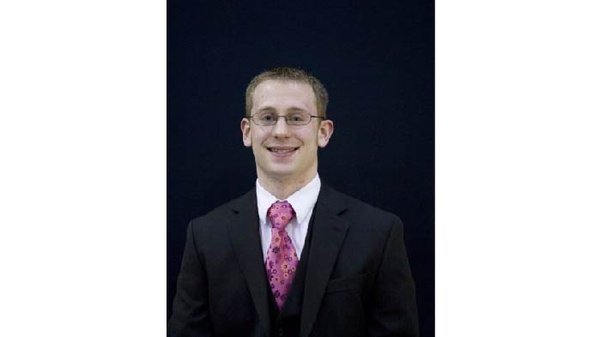Graduating Senior Receives Prestigious Fellowship From the National Science Foundation
April 13, 2011

Brandon Gassaway, a senior graduating in biochemistry this spring, was pleased to find out he had received a graduate research fellowship from the National Science Foundation Graduate Research Fellowship Program. The grant was awarded to him due to a research proposal he wrote and will fund his PhD studies in the fall.
Every year, the National Science Foundation awards about two thousand grants to prospective graduate students or graduate students who are no more than three semesters into their graduate program. The grant awards $30,000 to each recipient for the next three years in addition to paying tuition at the school of their choice – a minimum $90,000 value.
“As Dr. [Allen] Buskirk told me yesterday, it’s kind of one of those career-making things,” Gassaway said. “Or career-starting, in my case.”
One of the main reasons Gassaway decided to attend BYU was its emphasis on undergraduate research. He was particularly interested in the biochemistry program. His PhD proposal is based on the research he has done as an undergraduate student.
“I’ve always really been interested in science,” he said. “I took three years of chemistry in high school. I was originally interested in how memory worked chemically, in your brain, so that’s kind of what got me into biochemistry, but now I’m more interested in diabetes – figuring out how that works and how it doesn’t work.”
Gassaway has worked with Dr. Emily Bates for almost two years studying the Andersen-Tawil Syndrome, “a rare, dominantly inherited episodic disorder that is characterized by periodic paralysis, heart arrhythmia and developmental abnormalities,” according to the research summary on Dr. Bates’ faculty page. Most ATS cases are caused by mutations in the KCNJ2 gene, “which encodes the inwardly rectifying potassium channel Kir2.1.”
Specifically, Gassaway said, the project focuses on how mutant potassium channels cause the development defects.
“We use Drosophila fruit flies as the model organism to study the molecular mechanisms of this disease; what about these potassium channels is causing the developmental defects that you observe in people with Andersen-Tawil Syndrome,” he said.
Dr. Bates said Gassaway’s dedication to the project led to significant contributions to the research and his help was “indispensible” in setting up her new laboratory. His work has been consistent and thorough.
“If his project demanded that he come into the lab on the weekend or late at night, Brandon did so without hesitation,” Dr. Bates said in an e-mail. “In fact, one Saturday night he was working in the lab at 11 p.m. when an incubator malfunction nearly killed all of the fruit fly stocks. If he hadn't been there to save the stocks that night, we could have lost all of the stocks.”
Gassaway meticulously documented defects in the fruit flies and made several important observations, including unexpected “tiny bristle transformations,” Dr. Bates said. "He and others in the lab performed the work to determine that phenotypes result from an interaction with Dpp. … Brandon has worked independently, performed all of the crosses accurately, and produced data worthy of second author on a publication.”
After applying to several different graduate school programs, Gassaway is trying to decide between going to Yale or Johns Hopkins University in the fall.
“[There are] lots of different factors,” he said. “I’m married, so the stipend they give you [is one]. Yale has a bunch of – shall I say, peripheral benefits; spouse benefits for my wife, like she can audit classes for free and gets library and gym access and stuff like that. And I could get paternity leave if I wanted. But Johns Hopkins – I really like the faculty and the people I talked to, so do I want that, or everything else good? It’s a tough decision. I’ve been spending a lot of time thinking.”
Dr. Bates is currently writing the paper to which Gassaway contributed and intends to submit it to the peer-reviewed journals Genetics or Development.
“I'm proud of the work that Brandon has done and how he worked to maintain his own funding through Undergraduate Research Awards, ORCA grants, and now one of the greatest honors in the nation to an upcoming PhD student, a National Science Foundation Fellowship,” she said.
By Jessica Henrie
Photo by Alexis hales